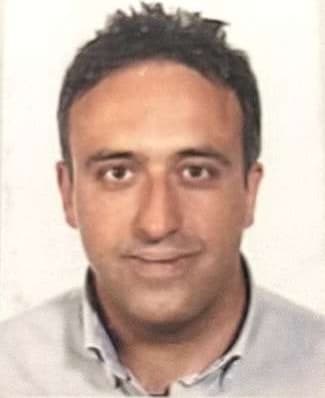Studiare
In questa sezione è possibile reperire le informazioni riguardanti l'organizzazione pratica del corso, lo svolgimento delle attività didattiche, le opportunità formative e i contatti utili durante tutto il percorso di studi, fino al conseguimento del titolo finale.
Calendario accademico
Il calendario accademico riporta le scadenze, gli adempimenti e i periodi rilevanti per la componente studentesca, personale docente e personale dell'Università. Sono inoltre indicate le festività e le chiusure ufficiali dell'Ateneo.
L’anno accademico inizia il 1° ottobre e termina il 30 settembre dell'anno successivo.
Calendario didattico
Il calendario didattico indica i periodi di svolgimento delle attività formative, di sessioni d'esami, di laurea e di chiusura per le festività.
| Periodo | Dal | Al |
|---|---|---|
| Annuale (Lingue e letterature straniere) | 27-set-2021 | 28-mag-2022 |
| I semestre (Lingue e letterature straniere) | 27-set-2021 | 8-gen-2022 |
| II semestre (Lingue e letterature straniere) | 14-feb-2022 | 28-mag-2022 |
| Sessione | Dal | Al |
|---|---|---|
| ESAMI LINGUE - sessione invernale | 10-gen-2022 | 12-feb-2022 |
| ESAMI LINGUE - sessione estiva | 30-mag-2022 | 23-lug-2022 |
| ESAMI LINGUE - sessione autunnale | 29-ago-2022 | 24-set-2022 |
| Sessione | Dal | Al |
|---|---|---|
| LAUREE LINGUE - sessione autunnale (a.a. 2020-2021) | 8-nov-2021 | 13-nov-2021 |
| LAUREE LINGUE - sessione straordinaria (a.a. 2020-2021) | 28-mar-2022 | 2-apr-2022 |
| LAUREE LINGUE - sessione estiva (a.a. 2021-2022) | 11-lug-2022 | 16-lug-2022 |
Calendario esami
Gli appelli d'esame sono gestiti dalla Unità Operativa Segreteria Corsi di Studio Lingue e letterature straniere.
Per consultazione e iscrizione agli appelli d'esame visita il sistema ESSE3.
Per problemi inerenti allo smarrimento della password di accesso ai servizi on-line si prega di rivolgersi al supporto informatico della Scuola o al servizio recupero credenziali
Per dubbi o domande leggi le risposte alle domande più frequenti F.A.Q. Iscrizione Esami
Docenti
 silvia.cavalieri@univr.it
silvia.cavalieri@univr.it
 riccardo.cella@univr.it
riccardo.cella@univr.it
 elisa.dallarosa@univr.it
elisa.dallarosa@univr.it
 jacopo.galavotti@univr.it
jacopo.galavotti@univr.it
 sara.giovine@univr.it
sara.giovine@univr.it
Morbiato Giacomo
 giacomo.morbiato@univr.it
giacomo.morbiato@univr.it
 chunye.niu@univr.it
chunye.niu@univr.it
 sara.paolini@univr.it
sara.paolini@univr.it
 tania.triberio@univr.it
tania.triberio@univr.it
Piano Didattico
Il piano didattico è l'elenco degli insegnamenti e delle altre attività formative che devono essere sostenute nel corso della propria carriera universitaria.
Selezionare il piano didattico in base all'anno accademico di iscrizione.
1° Anno
| Insegnamenti | Crediti | TAF | SSD |
|---|
1a lingua straniera 2a lingua straniera1a letteratura e cultura stranieraLetteratura e cultura tedesca 1
2a letteratura e cultura stranieraLetteratura e cultura tedesca 1
2° Anno Attivato nell'A.A. 2022/2023
| Insegnamenti | Crediti | TAF | SSD |
|---|
1a lingua straniera2a lingua straniera1a letteratura e cultura straniera o materia d'areaDeutsche Literatur und Kultur 2
English literature and culture 2
Literatura y cultura española 2
Littérature et culture françaises 2
2a letteratura e cultura straniera o materia d'areaDeutsche Literatur und Kultur 2
English literature and culture 2
Literatura y cultura española 2
Littérature et culture françaises 2
Geografia delle comunicazioni e del commercio internazionale
Letteratura e cultura italiana
Storia economica contemporanea
Teoria e tecnica della comunicazione
3° Anno Attivato nell'A.A. 2023/2024
| Insegnamenti | Crediti | TAF | SSD |
|---|
1a lingua straniera2a lingua stranieraDiritto pubblico comparato ed europeo
Principi di marketing internazionale
| Insegnamenti | Crediti | TAF | SSD |
|---|
1a lingua straniera 2a lingua straniera1a letteratura e cultura stranieraLetteratura e cultura tedesca 1
2a letteratura e cultura stranieraLetteratura e cultura tedesca 1
| Insegnamenti | Crediti | TAF | SSD |
|---|
1a lingua straniera2a lingua straniera1a letteratura e cultura straniera o materia d'areaDeutsche Literatur und Kultur 2
English literature and culture 2
Literatura y cultura española 2
Littérature et culture françaises 2
2a letteratura e cultura straniera o materia d'areaDeutsche Literatur und Kultur 2
English literature and culture 2
Literatura y cultura española 2
Littérature et culture françaises 2
Geografia delle comunicazioni e del commercio internazionale
Letteratura e cultura italiana
Storia economica contemporanea
Teoria e tecnica della comunicazione
| Insegnamenti | Crediti | TAF | SSD |
|---|
1a lingua straniera2a lingua stranieraDiritto pubblico comparato ed europeo
Principi di marketing internazionale
| Insegnamenti | Crediti | TAF | SSD |
|---|
Legenda | Tipo Attività Formativa (TAF)
TAF (Tipologia Attività Formativa) Tutti gli insegnamenti e le attività sono classificate in diversi tipi di attività formativa, indicati da una lettera.
English literature and culture 1 [Cognomi A-E] (2021/2022)
Codice insegnamento
4S002903
Docente
Coordinatore
Crediti
6
Lingua di erogazione
Inglese
Settore Scientifico Disciplinare (SSD)
L-LIN/10 - LETTERATURA INGLESE
Periodo
I semestre (Lingue e letterature straniere) dal 27-set-2021 al 8-gen-2022.
Obiettivi formativi
Il corso, impartito in lingua inglese, mira a introdurre gli studenti ad alcuni aspetti rilevanti della Letteratura inglese compresa nell’arco temporale che si estende dal preromanticismo all’epoca contemporanea, con particolare riferimento ad alcuni testi canonici. Intende inoltre fornire strumenti di base per l’analisi critica dei testi e dei generi letterari. Obiettivo del corso è fornire una buona conoscenza della letteratura britannica del periodo in programma (contesto storico, testi, generi, movimenti e autori) e di sviluppare capacità di analisi, argomentazione ed esposizione in lingua inglese relativamente a varie tipologie di testi letterari nel loro contesto storico-culturale. Al completamento del corso, gli studenti saranno in grado di: - analizzare i testi letterari in programma nei loro contesti storico-culturali; - discuterli in modo argomentativo tenendo conto delle convenzioni letterarie e applicando un approccio critico informato e consapevole al testo letterario; - esporre le conoscenze acquisite in lingua inglese in modo chiaro e coerente.
Programma
Her Bread to Earn. Women, Money, and Society in the Nineteenth- and Twentieth-Century Literary Imagination
Attraverso la lettura di tre testi, pubblicati tra il 1847 e il 1966 e tutti declinati ‘al femminile’, il corso si propone di indagare, in una prospettiva diacronica e con uno sguardo critico rivolto anche alla nozione di appropriazione letteraria, le problematiche intellettuali e socio-economiche, oltre che letterarie e culturali, legate alla condizione della donna e alla sua concettualizzazione tra Otto e Novecento.
Avvertenze
Il programma si articola in tre parti, rubricate sotto la voce TESTI DI RIFERIMENTO: a. Testi primari, b. e b1. Letture critiche e c. Manuale.
Ulteriori precisazioni bibliografiche, sul reperimento del materiale e sulle modalità di esame saranno fornite all’inizio delle lezioni.
Lingua: il corso sarà tenuto in inglese.
TESTI DI RIFERIMENTO
a. Testi primari
- Charlotte Bronte, Jane Eyre, ed. by Stevie Davies, Penguin, 2006.
- Virginia Woolf, A Room of One’s Own, in V. Woolf, A Room of One’s Own and Three Guineas, ed. by Michèle Barrett, Penguin 2019, pp. 3-103.
- Jean Rhys, Wide Sargasso Sea, ed. by Andrea Ashworth, Penguin, 2000.
b. Letture critiche
- Julie Sanders, Adaptation and Appropriation, Routledge, 2006, pp. 1-41, 95-137.
- Esther Godfrey, “Jane Eyre, from Governess to Girl Bride”, Studies in English Literature, 1500-1900, Vol. 45, No. 4, 2005, pp. 853-871.
- Susan Stanford Friedman, “A Room of One’s Own in the World: The Pre-life and After-life of Shakespeare’s Sister”, in A Companion to Virginia Woolf, ed. by Susan Berman, Blackwell, 2019, pp. 189-201.
- Caroline Rody, “Burning Down the House: The Revisionary Paradigm of Jean Rhys’s Wide Sargasso Sea”, in Wide Sargasso Sea, ed. by Judith L. Raiskin, Norton, 1999, pp. 217-225.
b1. Letture critiche aggiuntive per studenti non frequentanti
- Laura Marcus, “Woolf’s feminism and feminism’s Woolf”, in The Cambridge Companion to Virginia Woolf, ed. by Susan Sellers, Cambridge UP, 2010, pp. 142-179.
- Michael Thorpe, “The Other Side: Wide Sargasso Sea and Jane Eyre”, in Critical Perspectives on Jean Rhys, ed. by Pierette M. Frickey, Three Continents, 1990, pp. 178-185.
c. Manuale
Il manuale di riferimento per il contesto storico-letterario (dal Romanticismo al Postmodernismo) è:
- Andrew Sanders, The Short Oxford History of English Literature (Oxford University Press, 2003 - third edition): capitoli 6 (“The Literature of the Romantic Period 1780-1830”), 7 (“High Victorian Literature 1830-1880”), 8 (“Late Victorian and Edwardian Literature 1880-1920), 9 (“Modernism and its Alternatives: Literature 1920-1945”) e 10 (“Post- War and Post-Modern Literature”).
MATERIALE DIDATTICO
Eventuale materiale di sostegno alla didattica (schede di approfondimento, altri testi, immagini, ecc.) utilizzato in classe sarà scaricabile dalla piattaforma MOODLE entro la fine delle lezioni. Questo materiale aggiuntivo non sostituisce, ma affianca la lettura integrale e obbligatoria dei testi primari e critici, oltre che del manuale di storia della letteratura, elencati alla voce TESTI DI RIFERIMENTO.
Bibliografia
Modalità d'esame
L’esame si svolgerà oralmente in inglese e consisterà in un colloquio volto a verificare 1) la conoscenza degli argomenti (testi, autori, generi) trattati durante il corso e del contesto storico-letterario (c. Manuale: nozioni generali relative al contesto storico-letterario e agli autori principali del periodo specificato: dal Romanticismo al Postmodernismo), 2) lo sviluppo di capacità di sintesi e di analisi in relazione alle principali tematiche e problematiche storico-culturali, testuali e critiche studiate e 3) la proprietà linguistico-argomentativa nell’esposizione. La prova potrà includere anche la lettura e il commento di brani tratti dai testi in programma (a. Testi primari). Non sono previste prove intermedie.
Tipologia di Attività formativa D e F
Nei piani didattici di ciascun Corso di studio è previsto l’obbligo di conseguire un certo numero di CFU di tipologia D e di tipologia F.
CFU D (attività a scelta dello studente)
I CFU D possono essere acquisiti mediante:
- insegnamenti non obbligatori nel proprio piano didattico (previa approvazione del Presidente del Collegio didattico per insegnamenti non selezionabili in autonomia)
- attività accreditate dal Collegio didattico
- competenze linguistiche (diverse o ulteriori) rispetto a quelle obbligatorie
- tirocini o stage
- TALC (competenze trasversali).
Competenze trasversali TALC
Nota bene: i corsi TALC sono riconosciuti solo come CFU D.
Il numero di CFU D va calcolato complessivamente sull’intero triennio/biennio e non è legato all'annualità.
CFU F
I CFU F sono solitamente relativi ad abilità informatiche, competenze linguistiche, stage e tirocini e ulteriori attività formative accreditate in questa tipologia dal Collegio Didattico.
Nel corso di laurea in Lingue e culture per il turismo e il commercio internazionale sono previste le seguenti tipologie:
- 3 CFU per terza lingua (livello B1)
- 3 CFU per informatica
- 6 CFU per stage obbligatorio.
Le competenze informatiche possono essere acquisite attraverso:
- il superamento della prova pratica presso le aule informatiche di Ateneo,
- la frequenza dei corsi attivati da scuole e centri accreditati dall’AICA (Associazione Italiana per l’Informatica e il Calcolo Automatico) o riconosciuti dalla Provincia e dalla Regione e superamento della relativa prova finale. Le domande per il riconoscimento delle competenze informatiche acquisite precedentemente vengono esaminate dalla Commissione per il riconoscimento delle Competenze Informatiche.
Le attività di stage sono finalizzate a far acquisire allo studente una conoscenza diretta in settori di particolare utilità per l’inserimento nel mondo del lavoro e per l’acquisizione di abilità specifiche d’interesse professionale.
Documenti e avvisi
-
 Domanda di riconoscimento crediti su certificazioni esterne di abilità-competenze informatiche
(pdf, it, 524 KB, 16/06/21)
Domanda di riconoscimento crediti su certificazioni esterne di abilità-competenze informatiche
(pdf, it, 524 KB, 16/06/21)
| anni | Insegnamenti | TAF | Docente |
|---|---|---|---|
| 1° 2° 3° | Introduzione alla robotica per studenti di materie umanistiche | D |
Paolo Fiorini
(Coordinatore)
|
Per scoprire tutte le attività didattiche accreditate dal Collegio didattico clicca qui
Prospettive
Avvisi degli insegnamenti e del corso di studio
Per la comunità studentesca
Se sei già iscritta/o a un corso di studio, puoi consultare tutti gli avvisi relativi al tuo corso di studi nella tua area riservata MyUnivr.
In questo portale potrai visualizzare informazioni, risorse e servizi utili che riguardano la tua carriera universitaria (libretto online, gestione della carriera Esse3, corsi e-learning, email istituzionale, modulistica di segreteria, procedure amministrative, ecc.).
Entra in MyUnivr con le tue credenziali GIA: solo così potrai ricevere notifica di tutti gli avvisi dei tuoi docenti e della tua segreteria via mail e a breve anche tramite l'app Univr.
Area riservata studenti
Gestione carriere
Assegnazione tutore
Attività accreditate D/F
Calendario didattico dettagliato
Cambio lingua curriculare
Competenze informatiche
Competenze linguistiche (prima e seconda lingua)
Competenze linguistiche in triennale (terza lingua CFU F)
Compilazione del piano didattico
Corso di Lingua portoghese
Erasmus+ e altre esperienze all'estero
Esercitazioni Linguistiche CLA
Presentazione dei corsi di studio e Open day
Prova finale
La prova finale, a cui vengono attribuiti 6 CFU consiste nella preparazione e discussione di un elaborato scritto su materia di uno degli insegnamenti in cui siano stati acquisiti almeno 6 CFU.
La discussione dell'elaborato scritto avviene in presenza di una Commissione Istruttoria composta da due docenti dell'Ateneo che si riunisce nei giorni precedenti la proclamazione e che propone alla Commissione di Laurea (composta da almeno tre docenti) una valutazione. Alla prova finale potranno essere attribuiti non più di 5 punti su 110. L'attribuzione della lode avviene o su proposta del relatore, se l'elaborato è ottimo e la media dei voti conseguiti negli esami dallo Studente raggiunge almeno 110 punti, o in maniera automatica se la media raggiunge almeno 113 punti.
Il voto di laurea è formato da:
a) la media aritmetica dei voti conseguiti negli esami, rapportata a 110,
b) la valutazione dell'elaborato finale,
c) punti supplementari di incentivazione:
- un massimo di 2 punti per le lodi (1 punto per due lodi, 2 punti per più lodi).
- 2 punti per la partecipazione al Programma Erasmus o assimilato, a condizione che lo studente: abbia acquisito almeno 12 CFU per un semestre di mobilità nel corso del ciclo di studi (24 CFU per due semestri di mobilità) e consegua il titolo finale entro la durata normale del corso di studi.
- 1 punto per la partecipazione al Programma Erasmus o assimilato, a condizione che lo studente: abbia acquisito almeno 12 CFU per un semestre di mobilità nel corso del ciclo di studi (24 CFU per due semestri di mobilità) e consegua il titolo finale anche oltre la durata normale del corso di studi.
- Lo studente vincitore del bando del Ministero dell’Università per assistente di lingua italiana all’estero o di borsa Comenius presso scuole di 1° e 2° grado dell’Unione Europea otterrà un punteggio supplementare, che sarà aggiunto alla media finale del voto di laurea: 1 punto, per una esperienza di assistentato fino a 6 mesi; 2 punti, per una esperienza di assistentato superiore a 6 mesi.
Non possono essere attribuiti punti di incentivazione per qualsiasi esperienza all’estero svolta dallo studente su iniziativa privata, anche se riconosciuta come equipollente dal Dipartimento/Collegio Didattico.
- 2 punti per la conclusione degli studi in corso (solo per gli studenti di prima immatricolazione, senza il riconoscimento della carriera pregressa o sospensione di carriera).
Adempimenti amministrativi, scadenze domanda di laurea, calendari delle discussioni elaborato finale e proclamazioni di laurea al seguente link Sessioni di laurea
Elenco delle proposte di tesi e stage
| Stage | Area di ricerca |
|---|---|
| PROGETTO MAMBRINO Stage per bibliografia | Argomenti vari |
Saperi minimi
Stage e tirocini
Nel piano didattico della laurea triennale in Lingue per il turismo e il commercio internazionale (L12) è previsto un periodo di stage obbligatorio (CFU 6) in organizzazioni imprenditoriali.
Le attività di stage sono finalizzate a far acquisire allo studente una conoscenza diretta in settori di particolare interesse per l’inserimento nel mondo del lavoro e per l’acquisizione di abilità professionali specifiche.
Le attività di stage sono svolte sotto la diretta responsabilità di un singolo docente presso studi professionali, enti della pubblica amministrazione, aziende accreditate dall’Ateneo veronese.
I crediti maturati in seguito ad attività di stage saranno attribuiti secondo quanto disposto nel dettaglio dal “Regolamento d’Ateneo per il riconoscimento dei crediti maturati negli stage universitari” vigente.
- Tutte le informazioni in merito agli stage per futuri studenti sono disponibili alla pagina Stage e tirocini.
- Tutte le informazioni in merito agli stage per studenti iscritti sono pubblicate in MyUnivr - come fare per - stage e tirocini.
- Tutte le informazioni in merito agli stage per le aziende sono disponili alla pagina Stage e tirocini per azienze.
Ulteriori informazioni al seguente link https://www.univr.it/it/i-nostri-servizi/gestione-carriere-studenti-lingue-e-letterature-straniere/stage-e-tirocini-lingue-e-letterature-straniere

 045-8028678
045-8028678
























































